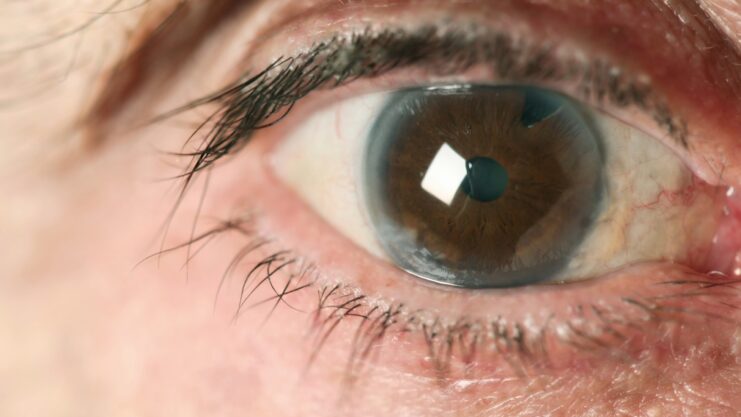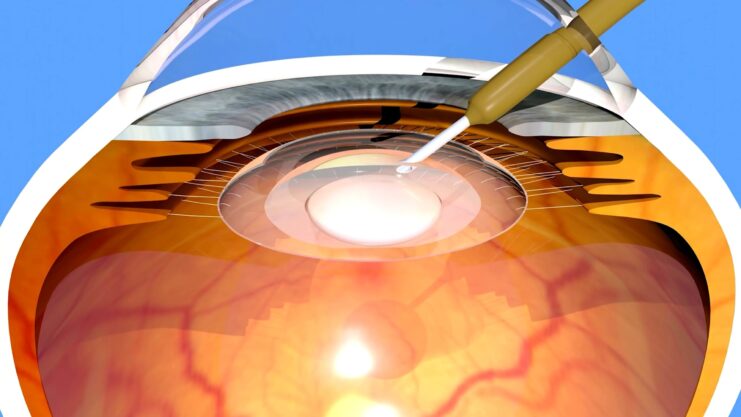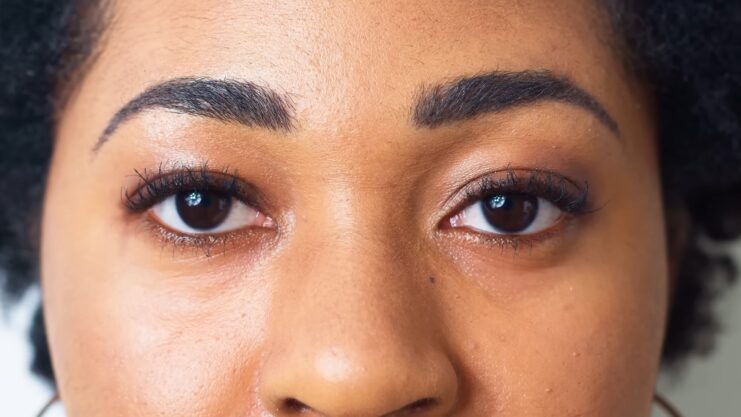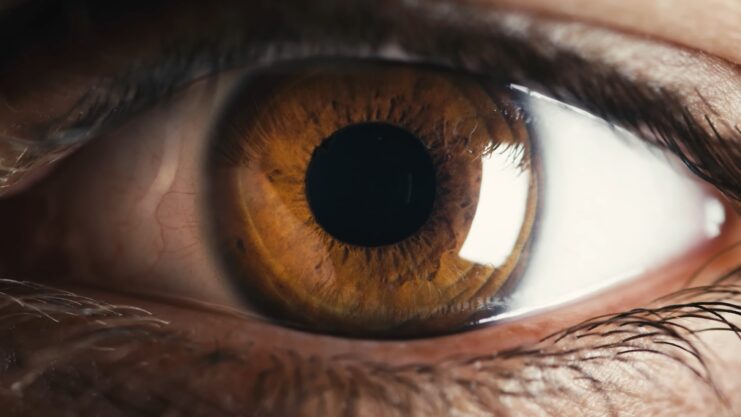The human eye, a marvel of biological engineering, is our window to the world. However, like any other organ, it is susceptible to various conditions that can impair its function. Among these are cataracts and corneal ulcers, two conditions that can significantly impact vision. While many have heard of these terms, misconceptions abound.
This article aims to shed light on these conditions, their causes, symptoms, and treatments, providing readers with a comprehensive understanding and debunking common myths.
What are the symptoms of cataracts?

Common symptoms of cataract include:
- a painless blurring of vision;
- glare, or light sensitivity;
- poor night vision;
- double vision in one eye;
- needing brighter light to read;
- fading or yellowing of colors.
What causes cataract?

The most common type of cataract is related to aging of the eye. Causes of cataract include:
- family history;
- medical problems, such as diabetes;
- injury to the eye;
- medications, especially steroids;
- long-term, unprotected exposure to sunlight;
- previous eye surgery;
- unknown factors.
How fast does develop?
How quickly the cataract develops varies among individuals, and may even be different between the two eyes. Most age-related cataracts progress gradually over a period of years.
Other cataracts, especially in younger people and people with diabetes, may progress rapidly over a short time. It is not possible to predict exactly how fast cataracts will develop in any given person.
How is cataract treated?

When symptoms begin to appear, you may be able to improve your vision for a while using new glasses, strong bifocals, magnification, appropriate lighting or other visual aids.
Surgery is the only way a cataract can be removed. However, if symptoms of cataract are not bothering you very much, surgery may not be needed. Sometimes a simple change in your eyeglass prescription may be helpful.
There are medications and dietary supplements available that claim to help prevent or slow the progress of cataracts. But none of these have been proven to be effective.
Protection from excessive sunlight may help slow the progression of cataracts. Sunglasses that screen out ultraviolet (UV) light rays or regular eyeglasses with a clear, anti-UV coating offer this protection.
When should surgery be done?
Surgery should be considered when cataracts cause enough loss of vision to interfere with your daily activities.
It is not true that cataracts need to be “ripe” before they can be removed, or that they need to be removed just because they are present.
Cataract surgery can be performed when your visual needs require it. You must decide if you can see to do your job and drive safely or, if you can read and watch TV in comfort. Can you see well enough to perform daily tasks, such as cooking, shopping, yard work or taking medications without difficulty?
What is a corneal ulcer?
A corneal ulcer is an open sore on the cornea, the thin clear structure overlying the iris, which is the colored part of your eye.
What causes a corneal ulcer?
Most corneal ulcers are caused by infection. Corneal ulcers caused by bacterial infections are common in people who wear contact lens.
What are the symptoms of a corneal ulcer?
- Red eye
- Severe pain
- Feeling that something is in your eye (Foreign body sensation)
- Tears
- Pus or thick discharge draining from your eye
- Blurry vision
- Pain when looking at bright lights (Photophobia)
- Swollen eyelids
- A white round spot on the cornea that is visible with the naked eye if the ulcer is very large
How dangerous are corneal ulcers?
Corneal ulcers are medical emergencies. It can cause blindness in as little as 24 hours.
How can I prevent corneal ulcers?

You can prevent corneal ulcers by practicing good habits for contact lens use and care.
Tips for Contact Lens Use
- Do not wear your contact lens for more than 8 hours at a stretch.
- Do not sleep with your lens on. Even short naps can be harmful.
- Do not swim with your lens.
- Do not use expired lens.
- Remove your lens immediately if you develop any of the symptoms listed above.
- Do not try to relieve your symptoms with eye drops. See a doctor immediately.
Tips for Contact Lens Care
- Always wash your hands thoroughly with a mild soap prior to handling you lenses. Special (hypo-allergenic) contact lens soaps are available from your optometrist. Always rinse your hands afterwards with clean water. Dry your hands with a lint-free towel.
- Get into the good habit of starting with your right lens first to avoid accidentally switching your lenses. Always check to see if your lens is inside-out before insertion.
- Only use the contact lens care solutions that your optometrist has recommended. Confusion and possible eye irritation can be avoided by staying with one manufacturer’s brand of lens care products. Always keep sufficient supplies on hand.
- In order to maintain optimum visual performance and eye\ health, you are urged to attend all recommended contact lens progress examinations.
- Clean, rinse and disinfect your lenses as recommended after each use. Except for disposable soft contacts, enzyme cleaning is recommended once a week.
- Always have an up-to-date pair of prescription glasses on hand to give your eyes a rest from contact lenses.
- Use “water-soluble” makeup only. Certain cosmetics can be a significant source of irritation. Your optometrist’s office maintains a supply of special hypo-allergenic water soluble cosmetics for your convenience and comfort. Use eye cosmetics sparingly.
- Your lens storage container should be thoroughly rinsed and cleaned with tap water or saline daily.
Conclusion
Our eyes are not just the windows to our soul but also our primary means of interacting with the world around us. Conditions like cataracts and corneal ulcers can severely impact our quality of life.
However, with the right knowledge, timely intervention, and proper care, especially for contact lens users, we can prevent or manage these conditions effectively. It’s essential to stay informed, practice good eye care habits, and seek medical attention when needed to ensure our eyes remain healthy and our vision clear.
Related Posts:
- Top 6 Myths on How You Can Get Infected with HIV
- The Eye's Window: Corneal Ulcers and the Importance…
- Boosting Your Etsy Shop: Tips and Tricks to Get More Sales
- Low Back Pain: Tips on Pain Relief and Prevention
- Smart TV Internet Hacks: 5 Tips for Enhancing Speed…
- Developing With React: Beginner's Guide and 14…












